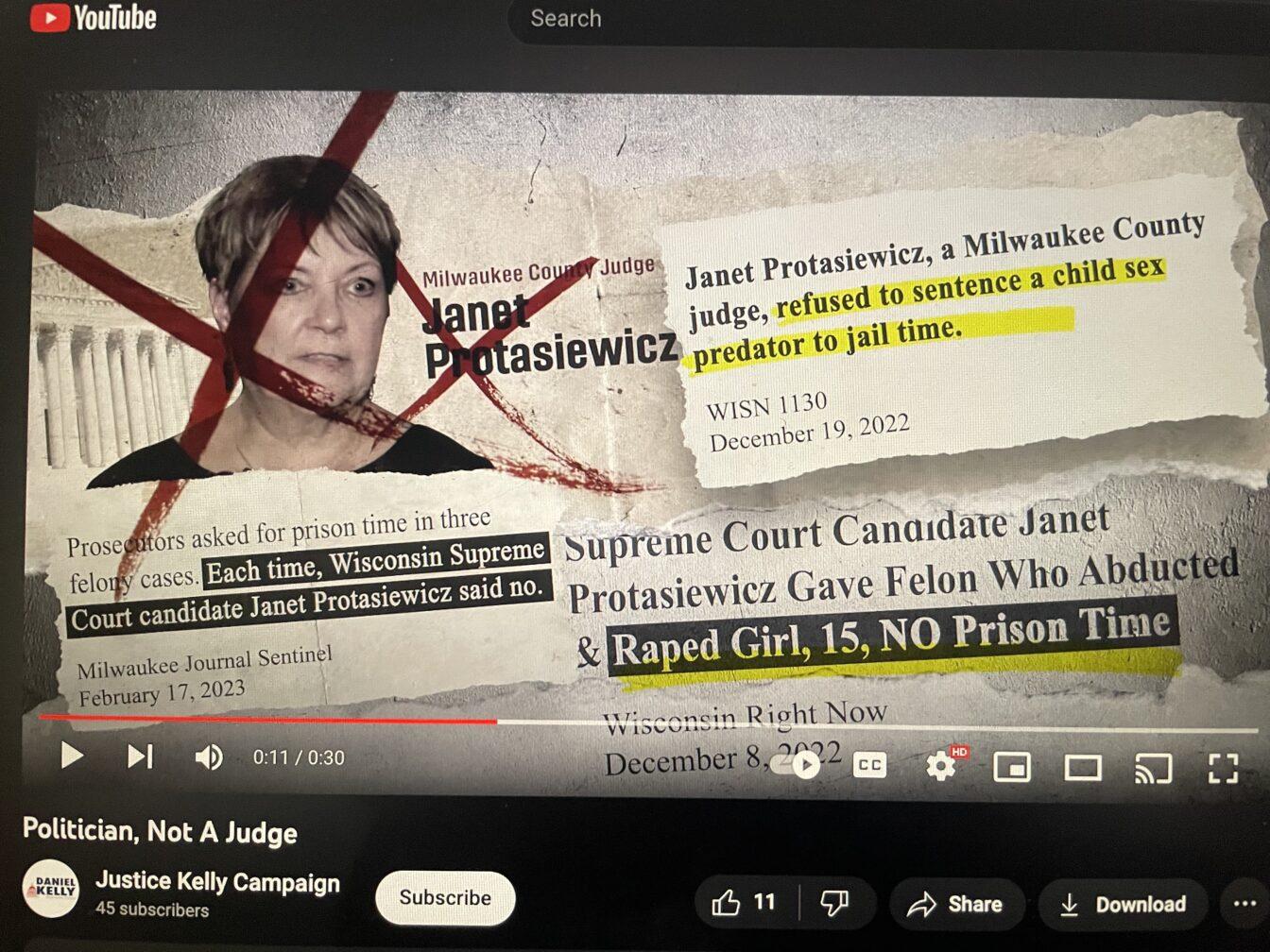Tough-on-crime ads are harmful. They are fear-mongering, socially irresponsible and built on shaky logical foundations.
It probably wouldn’t surprise you if you heard they began with racially coded George Bush ads in the 1980s. It probably wouldn’t surprise you to hear that tough-on-crime bills can still receive bipartisan support in state and national legislation. At this point, we know what “tough on crime” means, we know what people it targets and we know what systems it perpetuates.
PBS recently interviewed University of Wisconsin–La Crosse political science professor Anthony Chergosky on the aforementioned Bush ad, and if its legacy in terms of racial coding is subconsciously recalled in this year’s similar state Supreme Court ads from conservative Judge Daniel Kelly.
The original ad attacked democratic candidate Michael Dukakis for a prisoner weekend furlough policy that resulted in a Black man named Willie Horton violently kidnapping and assaulting a couple while still serving his sentence. It was highly effective and factored into Bush’s victory that year, paving the way for a deluge of similar ads from both parties.
Asbury’s break from United Methodist Church represents direction of progressive adaptation
It is obvious that the original ad was racially coded and that legacy continues today. We could debate whether it was intentionally racist or a reflection of the political atmosphere, whether the uptick of similar ads signals a correlation with racist attitudes or some other unnecessary argument that entirely misses the mark. None of it matters.
Tough-on-crime ads — even the ones that make a careful point of not including people of color in them — are fundamentally racist because they directly endorse the expansion of a justice system still struggling with white supremacy. Kelly’s campaign ads, which criticize liberal judge Janet Protasiewicz for letting “violent criminals” out and reducing criminal sentencing perpetuate harmful tough-on-crime rhetoric, and are not representative of the truth, according to the Wisconsin State Journal.
What does it mean to be tough on crime anyway? To employ even more mandatory minimum sentences? To enforce ridiculous zero-tolerance drug policies? To send more of our famously patient police officers to training seminars that stroke their egos and encourage them to act with impunity?
The Badger Herald Editorial Board endorses alder candidates for Districts 2, 4, 8
With the “tough on crime” policy there is a correlated increase in incarceration and no effect on crime rates. Invariably, these policies disproportionately affect members of over-policed, racially segregated communities.
These long-standing racial systems intersect with the prison industrial complex, which consists of a web of profit interests that have formed between the government and private companies that run or supply prisons.
Our prisons are already constantly overcrowded for the sake of profit. What does hard sentencing do except add more bodies into a system already famed for its recidivism?
Firearm-related suicide prevention represents crucial starting point for gun control
In this year’s state Supreme Court race, Kelly has used much of this tough-on-crime rhetoric in his bid for election, appealing to voters who worry about crime and safety. This is because the Republican party needs an issue to unify its voter base in a tough election — not because either party is less complicit in the ongoing issues in our justice system. Tough-on-crime ads are simply a symptom of the larger issues of race in America.
Jeremiah Frodl ([email protected]) is a senior studying communication.





















